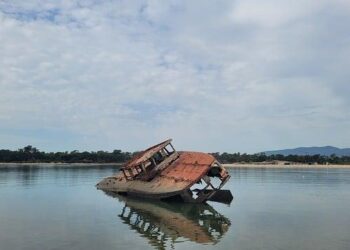Portugal’s New Chapter: Luis Montenegro Takes the Helm as Prime Minister
Following a pivotal election that altered Portugal’s parliamentary balance, Luis Montenegro has been sworn in as the country’s new Prime Minister. As leader of the Social Democratic Party (PSD), Montenegro inherits a complex political environment marked by economic uncertainty and growing public demands for reform. His administration is expected to confront challenges such as inflationary pressures and social disparities while steering Portugal toward sustainable growth. This article explores the election outcomes, Montenegro’s political background, and what his premiership could mean for Portugal’s future trajectory.
Montenegro’s Strategic Agenda: Prioritizing Growth, Equity, and Sustainability
In his early days in office, Prime Minister Luis Montenegro has outlined an ambitious roadmap aimed at revitalizing Portugal through inclusive economic policies and social advancement. Central to his approach is fostering innovation-driven job creation with a focus on empowering small- and medium-sized enterprises (SMEs). Key pillars of this strategy include:
- Incentivizing Innovation: Offering tax reliefs targeted at startups and environmentally conscious companies to boost entrepreneurship.
- Modernizing Infrastructure: Upgrading both digital networks and public transit systems to enhance connectivity across urban centers and rural regions alike.
- Expanding Social Services: Increasing investment in education access and healthcare quality to reduce inequality gaps.
The road ahead is not without obstacles. Economic volatility remains a concern amid global uncertainties, while maintaining fiscal responsibility will require delicate balancing acts—especially given mounting public expectations for expanded welfare programs. Additional hurdles include:
- Navigating EU Fiscal Frameworks: Aligning national priorities with European Union budgetary rules while seeking greater policy flexibility.
- Mending Public Trust: Engaging transparently with citizens disillusioned by prior administrations’ shortcomings.
- Tackling Climate Commitments: Implementing effective environmental policies that harmonize ecological goals with economic vitality.
The Political Shift: How Montenegro Could Redefine Portugal’s Governance Landscape
Luis Montenegro’s rise signals a transformative phase in Portuguese politics characterized by renewed emphasis on economic renewal, social justice reforms, and enhanced international cooperation. Analysts anticipate that his leadership will bring fresh momentum toward addressing long-standing structural issues within the country. Notable areas poised for change include:
- Sustainable Economic Development: Embracing green technologies alongside digital innovation to diversify growth sectors.
- Broadening Social Inclusion Efforts: Introducing comprehensive reforms aimed at reducing income disparities across demographics.
- Diplomatic Engagements: Strengthening alliances within Europe while expanding global partnerships beyond traditional frameworks.
This shift mirrors recent political realignments seen across Europe—such as Spain’s coalition government focusing on climate action or Italy’s push towards technological modernization—highlighting an emerging trend of pragmatic governance blending progressive ideals with fiscal prudence.[1]
| Policy Domain | Projected Innovations | Areas of Continuity |
|---|---|---|
| Economic Policy | Boosted funding for renewable energy projects; support for tech startups; | Adherence to EU financial stability criteria; |
| Social Welfare Programs | Expanded rural healthcare initiatives; vocational training enhancements; | Sustained commitment to universal education access; |
| Foreign Affairs & Security | Deeper collaboration within EU frameworks; diversified trade partnerships; | Ongoing NATO membership obligations maintained; |
Navigating Complex Challenges: Recommendations for Effective Governance Under Montenegro’s Leadership
Luis Montenegro steps into office amid pressing socio-economic challenges demanding innovative yet pragmatic solutions. To foster resilience against external shocks such as fluctuating energy prices or geopolitical tensions affecting trade routes, diversifying Portugal’s economy beyond traditional industries like tourism is essential.[2]
A strategic emphasis on emerging sectors—including renewable energy technologies like offshore wind farms (which have seen over a doubling of capacity globally since last year)—can create sustainable employment opportunities while aligning with climate goals.[3]
Cultivating an investor-friendly environment through streamlined regulations will also be vital in attracting foreign direct investment (FDI) necessary for scaling new industries.
Parallel attention must be paid to bridging social divides via targeted interventions such as:
- Crafting vocational training programs tailored toward evolving labor market demands in technology-driven fields;
- Amping up healthcare accessibility particularly in underserved rural communities where medical resources remain scarce;
- Pioneering inclusion initiatives designed specifically around marginalized groups including ethnic minorities or economically disadvantaged youth.
An independent advisory council comprising experts from academia, industry leaders, civil society representatives could oversee implementation progress ensuring transparency along every step—a move likely enhancing public confidence during this transitional period.
A Forward Look: Anticipations Surrounding Luis Montenegro’s Premiership  and Its Broader Impact  on Portugal
The appointment of Luis Montenegro ushers in an era filled with both promise and complexity amidst shifting domestic expectations coupled with evolving international dynamics post-pandemic recovery phase.
His success hinges upon balancing ambitious reform agendas against fiscal realities whilst maintaining open dialogue channels between government institutions & citizens alike.
As observers worldwide monitor developments closely—from Lisbon boardrooms down to grassroots communities—the unfolding narrative promises insights into how modern European democracies adapt leadership strategies under pressure from multifaceted crises ranging from inflation surges reaching nearly +6% year-on-year[4], migration flows reshaping demographic profiles, and urgent climate imperatives demanding swift action.















